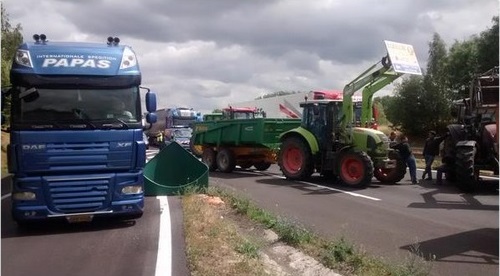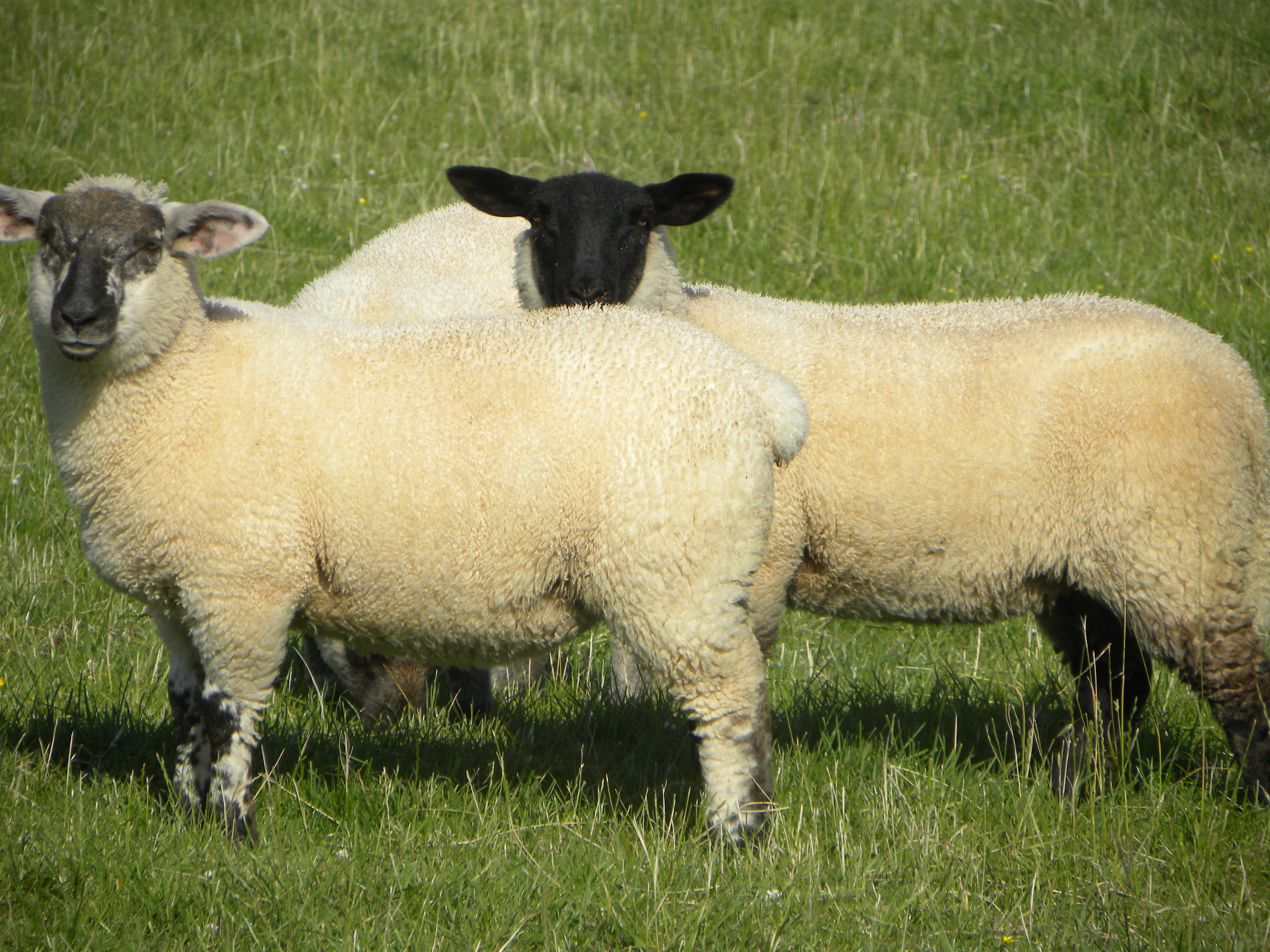The immigrant crisis in the French port of Calais coupled with continued ‘militant’ French farmer protest is creating huge difficulties for Irish hauliers taking Irish food into France, according to Verona Murphy of the Irish Road Hauliers Association.
According to Murphy as off today (Wednesday) no Irish trucks have been attacked yet. But she said the situation is not going to get better next week.
“Monday and Tuesday the bulk of Irish meat product moves through France and the French farmers know this. Their protests are likely to escalate next week.
“French farmers are extremely militant,” Murphy said.
“The really have a ‘don’t mess with us’ attitude and see no issue with stopping a truck and burning product.
Murphy described the situation as a ‘real disaster’ at the moment and said that hauliers are caught in the middle of the whole situation.
She cited a shipment of Irish beef which left Ireland destined for France last Friday and didn’t make delivery of the product until Tuesday a full 24 hours late. The Driver she said was over 20hrs waiting on a road in the UK to cross the channel.
Murphy called for immediate Government and EU action to alleviate what she called a ‘grave humanitarian crisis’ in Calais.
Will it impact on Irish prices
Much like the hauliers, the problems for Irish meat processors are two fold, according to one industry source.
Firstly, he cited the immigrant crisis in Calais as a major cause for concern.
Calais is the main port through which much of Ireland’s beef and lamb destined for France travels. With the port closed today (Wednesday) the problems in Calais have forced processors to find alternative routes across the English Channel.
The second issue for Irish beef and lamb in France is the ongoing farmer disruption across France. The French farmer protests have seen many French retailers take imported product off their shelves.
He added that if a resolution is not found in the next number of days the difficulties could start to impact on Irish beef and lamb farm gate prices.
Another Irish meat industry source confirmed that both issues are impacting on the returns the processors are receiving from the French market.
The source within the industry said prices are coming under serious pressure and being seriously cut by as much as €2/kg.
“The French retailers know how dependant we are on them,” he said.
However, according to the source the retailers are coming under ‘serious’ pressure too from French farmers.
“Their strategy has been to go into supermarkets and take all the non-French fresh produce off the shelves, take it to the check out and then say they have no money, so the fresh meat is being inadvertently destroyed.”
He also said that some supermarkets chose to not open last Thursday because of the protests, which has impacted on French sentiment towards the protesting farmers.
Lamb prices should not be affected – IFA
IFA National Sheep Committee Chairman John Lynskey has said IFA has been in contact with the FNO (French Sheep Farmers Association) and Bord Bia over concerns regarding disturbances on the French market for Irish lamb.
He said supplies remain very tight at the factories here and prices are at €4.70 to tops of €4.80/kg this week. In addition, he said the store trade in the marts remains very buoyant keeping a solid floor in the market.
In the UK this week he said prices at the marts were varying from £1.44 to £1.48/kg lw, which is the equivalent of €4.60 to €4.80/kg inc VAT. Factories prices are higher ranging from €4.80 to €5.00/kg.
John Lynskey said IFA has also being in contact with An Bord Bia and the key retailers about promotions on the domestic market. He said there is a real opportunity to promote lamb more strongly here and Bord Bia and retailers need to grasp this opportunity.
The IFA man said reports from France indicate the focus of the protests is more on pigmeat, beef and dairy and less so on lamb. Controls at the border are continuing, particularly the German and Spanish borders and less so at the ports.
John Lynskey said farmers are continuing to bargain hard on both price and weights. He said more and more deals are at 21.5kg at this stage and some plants are moving to 22kg on August 1.



